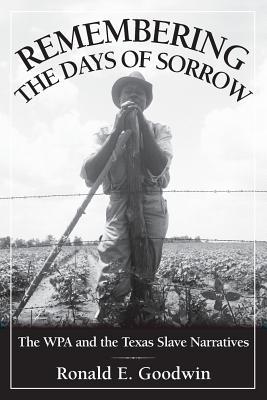Buoyed by the Civil Rights movement of the 1950s and 1960s, historians began reevaluating previously held beliefs of American slavery. Under particular scrutiny was the belief in slavery's paternalistic benevolence. Remembering the Days of Sorrow is not another attempt to revise this outdated perception justifying slavery. Others have already done that. As part of the New Deal's national agenda of work relief programs, the Slave Narratives project provided employment while simultaneously preserving the memories of former slaves throughout the country. Remembering the Days of Sorrow allows the voices of Texas's former slaves to resonate to a new generation as they remembered what it was like to suffer under the yoke of slavery as well as the yoke of old age and poverty in the Great Depression of the 1930s.

Remembering the Days of Sorrow: The Wpa and the Texas Slave Narratives
Buoyed by the Civil Rights movement of the 1950s and 1960s, historians began reevaluating previously held beliefs of American slavery. Under particular scrutiny was the belief in slavery's paternalistic benevolence. Remembering the Days of Sorrow is not another attempt to revise this outdated perception justifying slavery. Others have already done that. As part of the New Deal's national agenda of work relief programs, the Slave Narratives project provided employment while simultaneously preserving the memories of former slaves throughout the country. Remembering the Days of Sorrow allows the voices of Texas's former slaves to resonate to a new generation as they remembered what it was like to suffer under the yoke of slavery as well as the yoke of old age and poverty in the Great Depression of the 1930s.